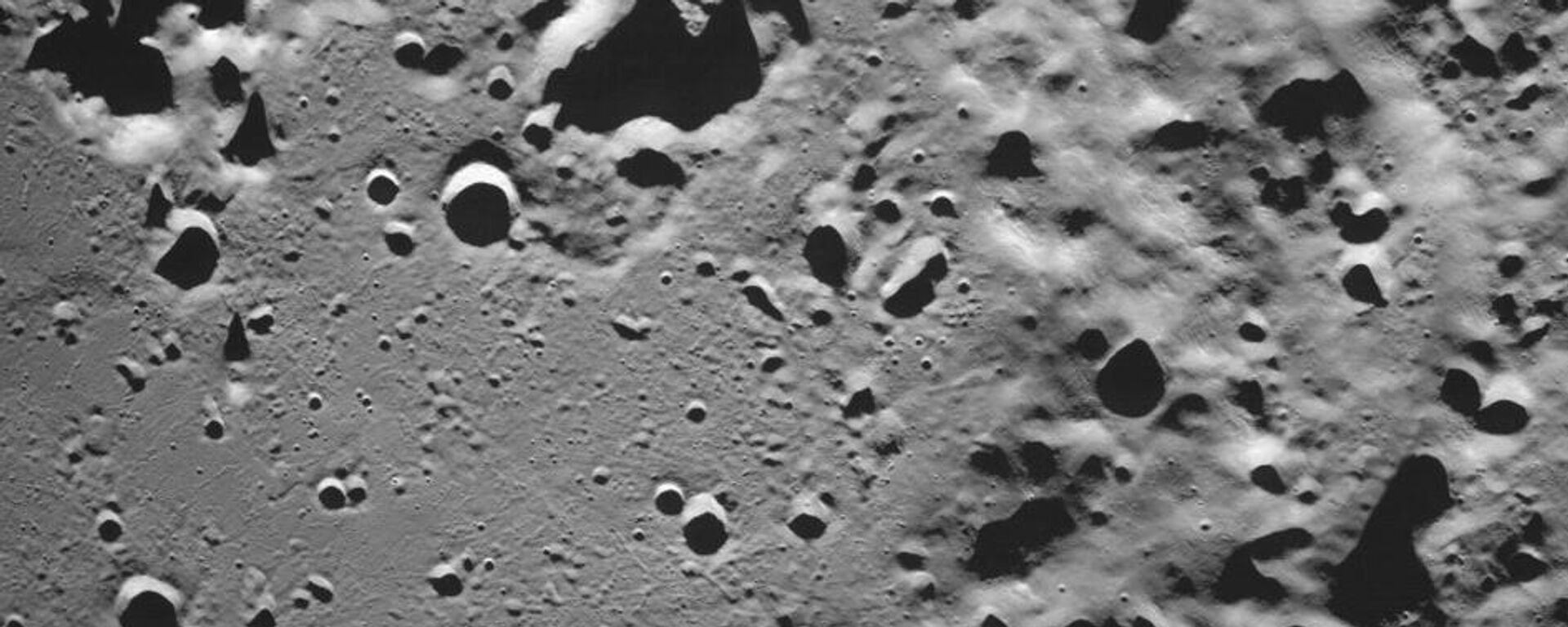https://sputnikglobe.com/20230911/speed-equipment-failure-may-be-behind-crash-of-russias-luna-25-moon-mission---source-1113293764.html
Speed Equipment Failure May Be Behind Crash of Russia's Luna-25 Moon Mission - Source
Speed Equipment Failure May Be Behind Crash of Russia's Luna-25 Moon Mission - Source
Sputnik International
The reason behind the crash of Russian lunar mission Luna-25 last month may have been a defect in the equipment measuring acceleration and not tested in outer space before the launch, a source told Sputnik on Monday.
2023-09-11T20:20+0000
2023-09-11T20:20+0000
2023-09-11T20:18+0000
beyond politics
science & tech
russia
roscosmos
luna-25 (moon-25)
soyuz-2.1b
vostochny cosmodrome
https://cdn1.img.sputnikglobe.com/img/07e7/08/0b/1112522663_0:161:3071:1888_1920x0_80_0_0_0354fda555ac62f0612704032776393f.jpg
Bius-L, the inertial reference unit for determining acceleration and orientation using fiber-optic gyroscopes and an accelerometer was designed by the Moscow-based Academician Pilyugin Center. The device was built using only Russian components. The source responded in the affirmative when asked if a malfunction of Bius-L could have caused Luna-25 to crash. A mechanism can only be considered fail-safe if it has been tested, while Bius-L had not undergone any tests in outer space, the source added. However, the malfunction in the inertial reference unit is only one of the possible causes under consideration by a special task force inquiring into the lunar mission's crash. On August 11, the Soyuz-2.1b carrier rocket lifted off from Russia's Vostochny Cosmodrome and launched into orbit Luna-25, the first Russian lunar mission in almost 50 years and the first one in Russia's independent space history. On August 19, Russia's state space corporation Roscosmos said that an emergency situation occurred on board the Luna-25 module that prevented its transition to the pre-landing orbit with the specified parameters. The next day, Roscosmos confirmed Luna-25 seemingly crashed into the moon's surface after going into an unplanned orbit. Communication with the spacecraft was lost at around 2:57 p.m. Moscow time (11:57 GMT) on August 19.
https://sputnikglobe.com/20230821/despite-luna-25-crash-russia-gained-invaluable-experience-of-flying-to-moon---roscosmos-1112766147.html
russia
Sputnik International
feedback@sputniknews.com
+74956456601
MIA „Rossiya Segodnya“
2023
Sputnik International
feedback@sputniknews.com
+74956456601
MIA „Rossiya Segodnya“
News
en_EN
Sputnik International
feedback@sputniknews.com
+74956456601
MIA „Rossiya Segodnya“
Sputnik International
feedback@sputniknews.com
+74956456601
MIA „Rossiya Segodnya“
luna-25, speed equipment failure, russia moon mission,
luna-25, speed equipment failure, russia moon mission,
Speed Equipment Failure May Be Behind Crash of Russia's Luna-25 Moon Mission - Source
MOSCOW (Sputnik) - The reason behind the crash of Russian lunar mission Luna-25 last month may have been a defect in the equipment measuring acceleration and not tested in outer space before the launch, a source told Sputnik on Monday.
Bius-L, the inertial reference unit for determining acceleration and orientation using fiber-optic gyroscopes and an accelerometer was designed by the Moscow-based Academician Pilyugin Center. The device was built using only Russian components.
The source responded in the affirmative when asked if a malfunction of Bius-L could have caused Luna-25 to crash. A mechanism can only be considered fail-safe if it has been tested, while Bius-L had not undergone any tests in outer space, the source added.
However, the malfunction in the inertial reference unit is only one of the possible causes under consideration by a special task force inquiring into the lunar mission's crash.

21 August 2023, 16:37 GMT
On August 11, the Soyuz-2.1b carrier rocket lifted off from Russia's Vostochny Cosmodrome and launched into orbit Luna-25, the first Russian lunar mission in almost 50 years and the first one in Russia's independent space history.
On August 19, Russia's state space corporation Roscosmos said that an emergency situation occurred on board the Luna-25 module that prevented its transition to the pre-landing orbit with the specified parameters. The next day, Roscosmos confirmed Luna-25 seemingly crashed into the moon's surface after going into an unplanned orbit. Communication with the spacecraft was lost at around 2:57 p.m. Moscow time (11:57 GMT) on August 19.



